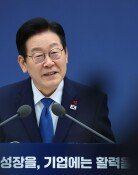Korea seems unprepared for new negotiation on defense cost-sharing
Korea seems unprepared for new negotiation on defense cost-sharing
Posted November. 10, 2016 07:06,
Updated November. 10, 2016 07:18
Donald Trump, who has won the presidency in the U.S., complained about the cost of U.S. troops in Korea in many occasions during the presidential campaign, calling for Korea’s higher contributions. In this context, it is a valid prediction that new U.S. president will seek for Korea’s greater financial commitments from next year. Unfortunately, Korea seems unprepared, adding uncertainty with regard to negotiation over cost sharing.
Korea and the U.S. have been setting how much share each side would be responsible for in every five years. The latest negotiation on cost-sharing for U.S. Forces Korea, which started in 2013, ended in February 2014. The next negotiation will begin in 2018 after the new president takes office in Korea. Not to mention that Korea needs to develop effective negotiation strategies. In reality, however, it is the other way round.
Korea agreed to be responsible for 920 billion won (797 million dollars) in 2014. To take a closer look, according to a government official, it was the results of political settlement to determine the sum of contributions only, instead of carefully calculating cost requirements per item. Against the backdrop, Korea will not have counterarguments to make if Trump demands Korea to pay as much as 1 trillion won (868 million dollars).
Among several cost requirements, including salary for Korean labors, support for military logistics and military facility construction, the biggest issue is construction costs. Unexecuted funds with regard to military facility construction amounted to 514.02 billion won (445 million dollars) in 2013 and slightly decreased to 466.04 billion won (438 million dollars) in 2014 and 343.1 billion won (297 million dollars) in 2015.
As of June 2016, a total of 359.59 billion won (311 million dollars) has not been executed yet. The Korean government said in 2014 that the bilateral negotiation enabled both countries to operate funds more transparently. On the contrary, still, funds worth hundreds of billions of won have not been used yet. The problem is that a fresh payment is required to be made every year, while the budget allocated in the previous year has not been executed at all. On top of that, suspicions have been fueled that the U.S. is intended to earn interests on unexecuted funds.
Soong-Ho Cho shcho@donga.com · Hyo-Ju Son hjson@donga.com




![‘치매머니 사냥’ 요양원의 비극…701호 동생, 702호 아들에 뜯겨[히어로콘텐츠/헌트③-上]](https://dimg.donga.com/c/138/175/90/1/wps/NEWS/IMAGE/2025/12/16/132980393.1.jpg)


